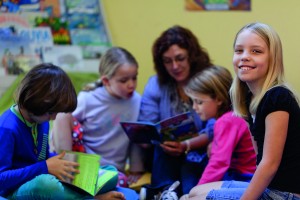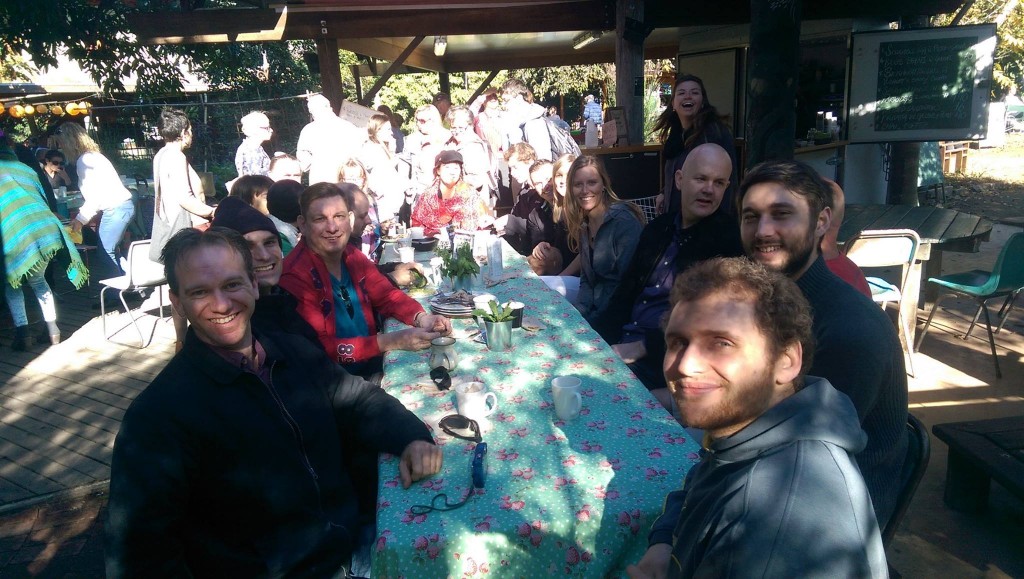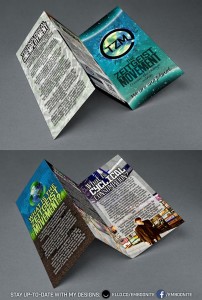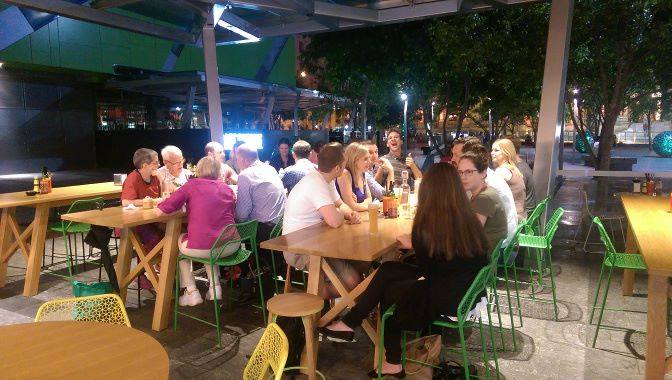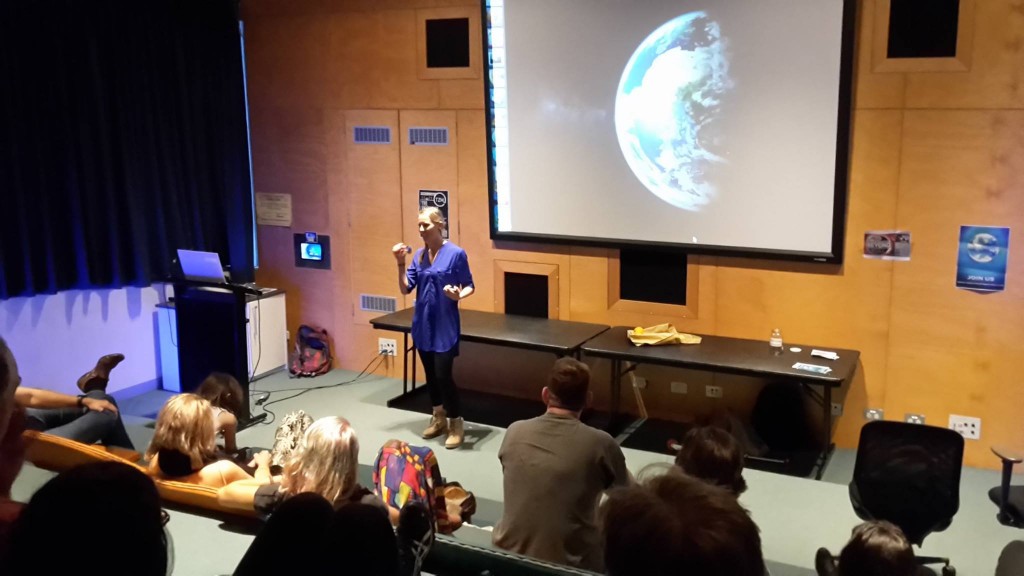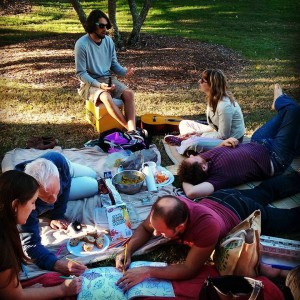As a #solarpunk writer and embodier of positive future living, I have long pondered how to “do primary school education right”. This month, my curiosity for learning about alternative approaches to bust the mainstream way-of-things-to-be-done led me to visit Brisbane Independent School (BIS) in the Western suburb of Pullenvale.
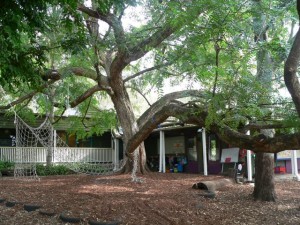 I had met one of their teachers at a party and asked him so many questions that he invited me to their monthly open day morning tea, which happened to be a few days later. I was excited – I have driven past the BIS sign for years and wondered what it was like. Finally I would get some answers!
I had met one of their teachers at a party and asked him so many questions that he invited me to their monthly open day morning tea, which happened to be a few days later. I was excited – I have driven past the BIS sign for years and wondered what it was like. Finally I would get some answers!
BIS is community-run (half the board-members are parents) and has existed for 50 years. It is one of Australia’s few truly independent schools with no religious or other ties (like Montessori or Steiner schools) whatsoever. Its size and structure has changed a lot over the years; today there are 60 students, prep to Year 6, so 4 ½ to about 12 years old). Most of BIS’ changes happened because the school’s teaching approach has constantly been adapted based on new findings in educational best practise.
Yes, you read that right – Brisbane Independent School has been implementing and testing scientific findings on education for the last 50 years!
As a result, BIS used to be tres laissez-faire about 25 years ago but has since become much more structured. However, compared to the rigidity of mainstream schools, BIS is extremely flexible – and gorgeously so. Which makes perfect sense because as we all know, once size (or approach) does not suit all…
 It is the first Wednesday of the month @9:55AM and I am greeted by trees, meadows, birdsong, gorgeous properties and a lawn-mowing Shetland pony (not the school’s!). BIS is located in the semi-rural Western suburb of Pullenvale, just off Moggill Road.
It is the first Wednesday of the month @9:55AM and I am greeted by trees, meadows, birdsong, gorgeous properties and a lawn-mowing Shetland pony (not the school’s!). BIS is located in the semi-rural Western suburb of Pullenvale, just off Moggill Road.
 I breathe deeply. What a setting for a school! I meet another lady who is checking the school out for her super-cute young daughter. Together we find our way to the parents’ room and it’s all really casual and friendly. We fill out an info form (Reason for visit: Research for TZM and my novel), have some biscuits and listen to the princip’s introductory talk. Jen talks fast and likes to have a laugh, she is full of passion for her work and has lots of energy – good energy. I already feel like enrolling myself in this school (this feeling grows stronger over the next couple of hours, and is shared by the other visitors!). There are four other parent teams or mothers apart from me, a couple of young children who I quietly envy because they might be able to attend this school one day, as well as a student’s mum who is helping out in the background.
I breathe deeply. What a setting for a school! I meet another lady who is checking the school out for her super-cute young daughter. Together we find our way to the parents’ room and it’s all really casual and friendly. We fill out an info form (Reason for visit: Research for TZM and my novel), have some biscuits and listen to the princip’s introductory talk. Jen talks fast and likes to have a laugh, she is full of passion for her work and has lots of energy – good energy. I already feel like enrolling myself in this school (this feeling grows stronger over the next couple of hours, and is shared by the other visitors!). There are four other parent teams or mothers apart from me, a couple of young children who I quietly envy because they might be able to attend this school one day, as well as a student’s mum who is helping out in the background.
Parents’ involvement is an important part of the running of this school, or rather, school community. Parents attend curriculum meetings, working bees and help out in various ways – without getting in the way of their child’s development of course. It can sap on kids’ confidence levels if they feel like their parents spend time at the school for their sake, rather than because they have a job to do.
Jen briefly explains the school’s Integral Development Strategy, which translates into an extremely well-researched education philosophy centered around the individual.
From the BIS website:
“What is an Integral School?
Simply put it means we use Integral Philosophy as the core of our values and daily experience at the school. Integral Philosophy (Wilber, 2000) draws together a variety of human development models into one coherent system. Integral acknowledges the thousands of researchers and developers who’s theories have been coordinated into one model.
“What if we took literally everything that all the various cultures have to tell us about human potential – about spiritual growth, psychological growth, and social growth – and put it all on the table? What if we attempted to find the essential keys to human growth based on the sum total of human knowledge now open to us? What if we attempted, based on extensive cross-cultural study, to use all of the world’s great traditions to create a composite map, an all-inclusive or integral map that included the best elements of them all. “ (Ken Wilber)”
Click here for more detail on Integral Philosophy
Then we go for a look around. The three classrooms are huge and comprised of several areas for different learning content. Arts, Numeracy/Literacy, Play, fish tanks and for the older students IT and Science equipment.
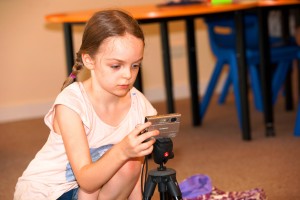 There is a library, a big hall, a heavenly arts room and big verandahs that lead to inviting outdoor areas with a massive sandpit, vegie gardens, several grassy areas with playground features and shade-giving climbing trees.
There is a library, a big hall, a heavenly arts room and big verandahs that lead to inviting outdoor areas with a massive sandpit, vegie gardens, several grassy areas with playground features and shade-giving climbing trees.
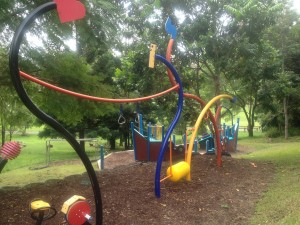 The increased demand for this type of education means there will be a fourth classroom (and teacher) next year and – hopefully – a high school in the next few years.
The increased demand for this type of education means there will be a fourth classroom (and teacher) next year and – hopefully – a high school in the next few years.
As we walk around and check out the different spaces, barefoot kids in colourful clothes (bare feet are the norm, plus no school uniforms) are playing in the garden, some are reading, a couple of girls are still in the classroom finishing their workbook exercises. A lot of the education here is self-paced and a lot of assessment is going on behind the scenes – who needs extra help with spelling, reading, maths or time-management? Who is not coping and why, who needs extra emotional support?
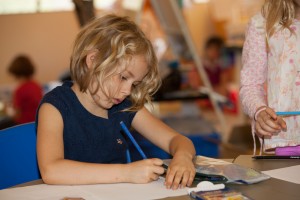 Jen and her team of three full-time teachers, three full-time teacher aides and a couple of part-time aides certainly have their hands full. Here the community aspect of the school comes in handy, as parents come in to help out in-class (on the day that I was there, a student’s doctor father was coming in to do a Wet Lab with the older kids dissecting toads or cow eyes or whatever it was – I’m sure we all remember that day of biology class…I spent it sitting on a table near the wide-open window, sticking my head out as far as I could while breathing through my mouth and trying not to retch). It is really interesting to learn more from Jen about the different developmental stages that make kids tick a certain way at a certain age, time and place.
Jen and her team of three full-time teachers, three full-time teacher aides and a couple of part-time aides certainly have their hands full. Here the community aspect of the school comes in handy, as parents come in to help out in-class (on the day that I was there, a student’s doctor father was coming in to do a Wet Lab with the older kids dissecting toads or cow eyes or whatever it was – I’m sure we all remember that day of biology class…I spent it sitting on a table near the wide-open window, sticking my head out as far as I could while breathing through my mouth and trying not to retch). It is really interesting to learn more from Jen about the different developmental stages that make kids tick a certain way at a certain age, time and place.
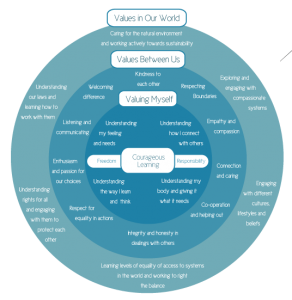 But how, you ask, does this work? Three classrooms for six or even seven grades?
But how, you ask, does this work? Three classrooms for six or even seven grades?
A BIS day involves three different learning sessions comprised of activities that teach the Australian curriculum. At least during the middle session, children move fluidly between the different classrooms. Aha, that is why Jen could not answer the question of how many kids there are per grade. This flow is based on their individual learning style, on what learning goals or projects they need to complete and what their developmental levels are. Sometimes it can be scary for younger students to visit the older kids’ classroom for the first time, but it usually turns out to be much less scary than anticipated and staff provide plenty of help along the way. Plus, if children really do not cope well, they can always turn around and try again later. This usually just means that they have not yet reached the next developmental stage – no biggie, they’ll get there. No pressure!
Click here for more detail on the different classrooms
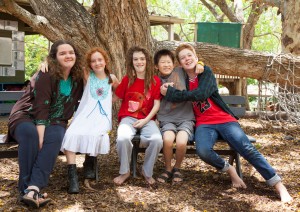 There are weekly Yoga and Jujitsu classes and the afternoon schedules relaxation and breathing (aka stress management) exercises as well as quality playtime.
There are weekly Yoga and Jujitsu classes and the afternoon schedules relaxation and breathing (aka stress management) exercises as well as quality playtime.
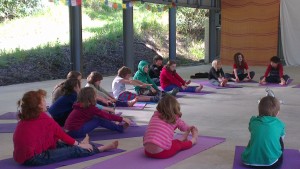 Seems crazy, and it involves a much deeper involvement in each individual to ensure no one slips between the cracks. It’s fascinating and really makes sense when you see it in action.
Seems crazy, and it involves a much deeper involvement in each individual to ensure no one slips between the cracks. It’s fascinating and really makes sense when you see it in action.
There is no homework for the first few years as there is no evidence suggesting that homework is beneficial for young students! When BIS students do start to get homework, it often becomes a fun activity because learning does not have the same stress attached to it from a young age. In normal schools kids’ spirits are being crushed by an iron homework regime from the start. So they have to sit still at school and learn, and then do more sitting still and learning at home in the afternoon? Crazy. That time should be reserved for playing, rest and self-expression!!
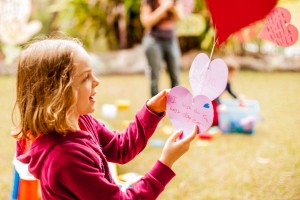 There is no punitive system, but the school does follow some basic rules and teaches consequences. For example, one consequence of unruly (pun intended, and makes me consider the word “unruly” in a new light) behaviour might be losing your license to use the arts room for a week.
There is no punitive system, but the school does follow some basic rules and teaches consequences. For example, one consequence of unruly (pun intended, and makes me consider the word “unruly” in a new light) behaviour might be losing your license to use the arts room for a week.
The teachers have weekly meetings where they discuss every student’s progression and developmental stage, making sure they are supported as holistic as possible. BIS teachers also do lots of personal development through weekend workshops and bi-weekly training in non-violent communication and integral philosophy.
The school follows the Australian curriculum and there is testing but it is not taken overly serious by teachers and parents – resulting in students who are not overly stressed like those in mainstream schools. NAPLAN testing is done at BIS but parents can decide to pull their child out if it becomes a major stress factor.
“The Naplan test day is a day like any other at BIS.” says Jen and, as I look around, imagining myself over twenty years younger and enrolled here, I believe her.
And somehow, it all comes together and works. BIS graduates do really well overall, they do degrees and get into all kinds of fields later on. The transition to high school can be hard for some, but then it is easy for others – just like with kids from mainstream schools. At least BIS kids have been learning for years how to deal with stress, how to resolve conflict and and how to express themselves in different ways. Apparently one former student expressed her surprise at the “emotional immaturity” of the other kids at her new high school.
After two hours and many questions (most of them asked by curious me while the “real” parents are busy with their kids and wondering whether their family might fit into this school) I walk back to the car park. The school’s mission is “to nurture, develop and trust our pupils’ innate love of learning and positive values” – they tick all the boxes and I feel empowered knowing that futuristic school design is not so futuristic after all, just hugely undervalued. How I wish that more schools could follow this really rather simple (yet by no means easy!) and intuitive approach to educating our little ones. Unfortunately Brisbane Independent School is one of only a few schools in the world that follow Integral Philosophy.
Tying it back to the train of TZM thought, I enjoy linking the concepts of Integral Philosophy to our transition as one Earthly People towards awakening and system change. The transition to a NLRBE (Natural Law Resource Based Economy) has many different developmental stages and so does each human being. The evolution of mind, body and soul clearly happens in bursts, mostly out of whack with each other (mainly because our system is so out of whack), sometimes in blissful harmony with each other.
Each of us has a slightly different process, a different recipe for learning and living, and most of us do not enjoy being pushed into anything – be that into learning institutions, belief systems, economic structures or new thought trains.
Our own education is really quite an intimate affair, especially as we grow into double-digits and begin to search for meaning and passions. We need to explore on our own sometimes, into different directions, guided by teachers, rather than being forced into one-size-must-fit-all scenarios which persist only because they are cheap and not challenged on a large enough scale.
Education is one of TZM’s big focus points– not just for adults but also for children. The UK’s TZM Education project is already kicking some serious arse by going into schools and presenting (un)common sense to our future generations. And even though many of us Geisters choose not to procreate, we have many teachers in our midst and are passionate about finding ways to “get education right” in preparation for a NLRBE. BIS is a stand-out example as well as a most interesting case study of a self-organising system, and I believe there is a lot to learn from its – sadly – very unique approach to education.


